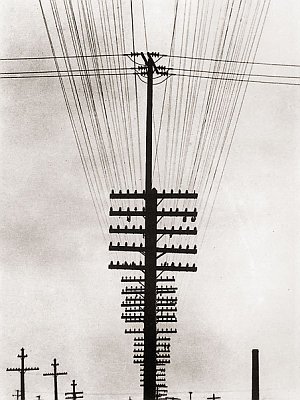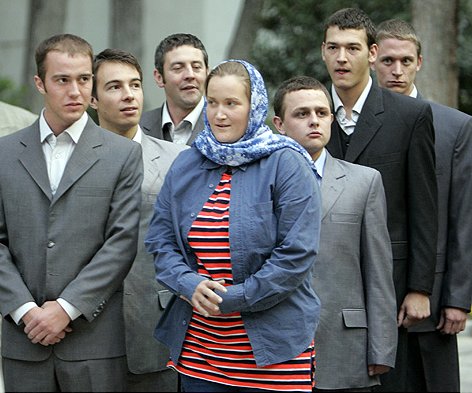There’s Going to Be a Lot of Happiness
As I read the Book of Genesis, God didn't give Adam and Eve a whole planet.
He gave them a manageable piece of property, for the sake of discussion let's say 200 acres.
I suggest to you Adams and Eves that you set as your goals the putting of some small part of the planet into something like safe and sane and decent order.
There's a lot of cleaning up to do.
There's a lot of rebuilding to do, both spiritual and physical.
And, again, there's going to be a lot of happiness. Don't forget to notice!
What painters and sculptors and writers do, incidentally, is put very small properties indeed into good order, as best they can.
A painter thinks, "I can't fix the whole planet, but I can at least make this square of canvas what it ought to be." And a sculptor thinks the same thing about a lump of clay or marble. A writer thinks the same about a piece of paper, conventionally eleven inches long and eight-and-a-half inches wide.
We're talking about something less than 200 acres, aren't we?
If not you, then surely your children will see the day when not one drop of petroleum and not one whiff of natural gas is left to power any sort of machinery, or cook or heat or light anything, and precious little coal. Junkyard!
Chilblains in the wintertime, and darkness indoors and out when the sun goes down? Light a candle made from the fat of a lower, dumber, deader animal? Who's got a wooden match when there are no trees? Our century should be called this: the Age of the Planet Gobblers. We, the ancestors of all Generation A's still to come, inherited an aromatic, juicy blue-green planet, and we ate it up!
In our defense, we can only say, "We never asked to be born such prolific, voracious creatures in the first place. It would have been much better for all concerned if we had been sea lions instead, provided, of course, that nobody else got to be a human being, or a great white shark, or a killer whale."
Meanwhile, there is jazz, which, as I've said, has no harmful side effects. And I am put in mind now of a lawsuit against a pharmaceutical manufacturer years back, in which the plaintiff's lawyer had this to say about a certain pill, a nostrum that might be likened to our indifference to what we are doing to our environment: "Death is not an acceptable side effect."
-- Kurt Vonnegut, 1922-2007





